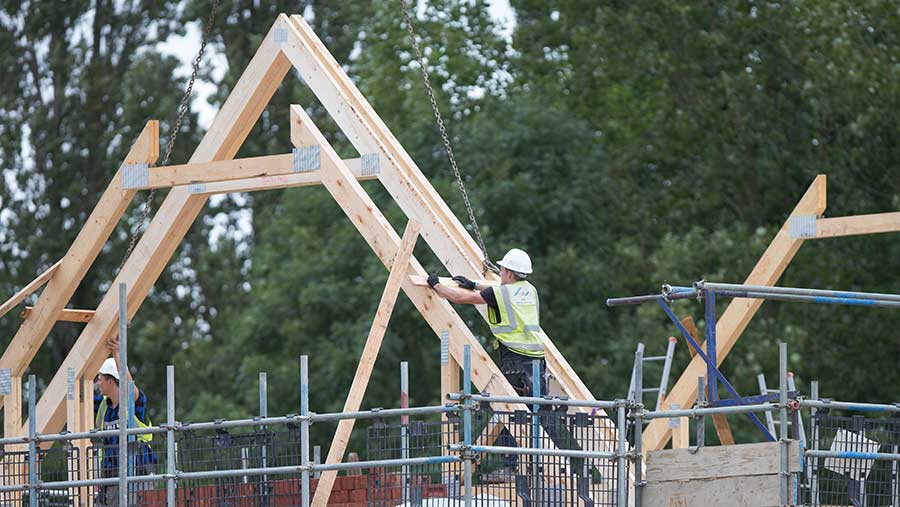Admin and overage clauses slowing down farm sales
 © Geoff Robinson Photography/REX/Shutterstock
© Geoff Robinson Photography/REX/Shutterstock Land sales are taking longer to conclude because sellers are imposing overage clauses on farmland with development potential.
Agents say mortgage lenders carrying out more rigorous checks and local authorities taking more time to respond to the necessary searches are also slowing down the process.
See more: 5 tips to speed up planning applications
Strutt & Parker says a sale to a cash buyer with no overage clause imposed on the land can move from point of offer to exchange in just two weeks.
But Farmers Weekly has spoken to agents who say there have been examples this year of the process taking more than three months.
Ambitious housebuilding targets
“There are two main causes of deals taking longer to conclude,” said Michael Fiddes, head of farm agency at Strutt & Parker.
“New banking regulations are making mortgage applications take longer and farmers selling land are more keen to secure any potential uplift in the land’s value, so we are seeing more farms being sold subject to overage.”
All local authorities are having to find considerable amounts of land to meet ambitious housebuilding targets.
Such is the scale of demand from developers, land that would once be considered to have no potential is now being looked at.
With numerous examples of development land being sold in excess of £1m/acre, some sellers are keen to ensure their piece of the pie. Mr Fiddes said the parameters of overage clauses are normally set out before launch, but that buyers usually negotiate terms.
“Heads of terms cover which land is subject to the clause and what will be taken into account when calculating the uplift in value, but the devil is in the detail,” he said.
A tightening of borrowing rules is also contributing to slower transactions where mortgages are involved.
But solicitors carrying out the necessary searches are emerging as a bigger blockage.
Tania Brinicombe, a negotiator at Stags, said: “We are finding that some local authorities in the South West are taking up to 12 weeks to return local searches, scuppering the ideal of an eight-week deal.”
Top tips: How to ensure a smooth sale
“Gather all the information about the property in advance of marketing, including asking the sellers’ lawyer to prepare a legal pack that includes searches, completed replies to enquiries and a draft contract and transfer.
“The legal pack will be an upfront cost, and the searches could go out of date, but it is worth the money if it shortens the process at a stressful time.”
Robert Fairey, partner, Brown & Co
“Avoid grey areas that require discussion and negotiation. They can cause friction and add time to the process.
“Be crystal clear on everything, particularly what is included and excluded from the sale. The heads of terms should be a comprehensive document.”
Louise Harrison, associate director, Savills
“Issues such as access rights, potential ransom strips, illegal dumping of waste and uncertainties surrounding the official boundaries of a property can all delay a sale.
“Walking the boundaries can help identify these problems ahead of time.”
Ben Ainscough, rural associate, Carter Jonas
“One of the most common causes of a delayed and protracted sale stems from land not being first registered with the Land Registry.
“We now encourage all our vendors to get their land registered in advance of agreeing a sale, rather than waiting until a buyer emerges.”
Tania Brinicombe, negotiator, Stags
“Sellers should aim to put their team together as early as possible in the process because they will need to work closely together, and bad communication between parties is often the cause of delays.”
William Morrison, head of South West farms, Knight Frank
